Protecting finite resources
Consumers are looking for products that are mindful of the world’s sustainability challenges. We’re reducing emissions and using resources responsibly to ensure our operations are future-proof and help improve the overall impact of our customers' value chains.
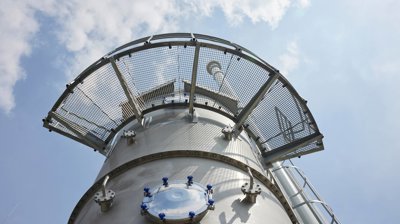
Reducing our carbon footprint
Progressively reducing our greenhouse gas emissions will reduce our contribution to climate change. Between 2018 and 2023 we reduced our scopes 1 and 2 emissions across our businesses by 33% in areas where we have the most direct influence to lower our emissions.
ABFI's approach to energy management and GHG emission reduction is guided by our Environmental Policy.
At Ohly, they're working to reduce scope 1 and 2 emissions by decarbonising their production site in Hamburg, Germany.
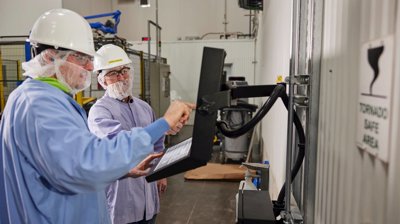
Mitigating for climate change
PGP International sites in the USA are adapting to the consequences of climate change-induced weather patterns alongside addressing their role in mitigating the effects of operations on the climate.
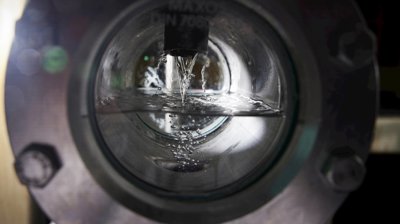
Looking after water
Water is essential to many operations across our seven businesses. It’s a resource we share with our communities and we are responsible for using water efficiently and fairly. Climate change affects water scarcity at some sites and we’re adapting operations in preparation for deeper impacts in the future.
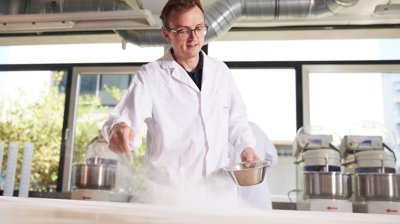
Putting waste to work
AB Enzymes and its Roal Oy production site in Finland separate waste to recycle or reuse it to generate energy. Dry waste containing enzymes, such as wheat flour, is used at a biogas plant to produce vehicle fuel, with residue repurposed as fertiliser. The Roal Oy production site also uses wastewater sludge to create biogas.
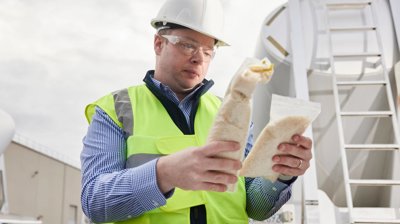
Sourcing raw materials responsibly
Thorough risk assessments across our raw material inputs allow us to prioritise investigations that ensure we source our raw materials responsibly. This approach includes respecting human rights, labour rights and workers’ health and safety, alongside improving traceability to understand potential environmental risks within our global supply chain.
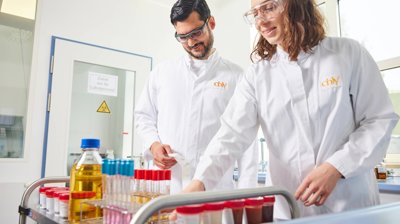
Helping our customers reduce livestock emissions
Ohly has developed a feed ingredient, Ohly-GO® Nucleo, that helps produce the same amount of food with fewer livestock emissions by improving the ratio between feed intake and the resulting meat yield.
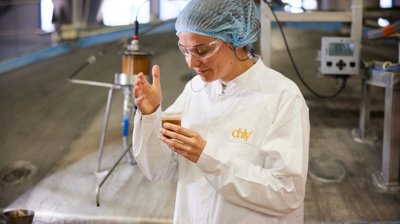
Transitioning to green electicity
Ohly's Hamburg site in Germany has switched to 100% renewable electricity and its engineers are now exploring how they can switch from using natural gas too.
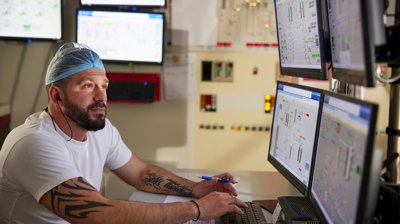
Measuring our impact
AB Enzymes and Ohly have worked with ClimatePartner to research climate data and measure the emissions generated from operations and activities across the value chain. The data gave them an operational carbon footprint to target activity that will make the most significant impact in emission reductions.
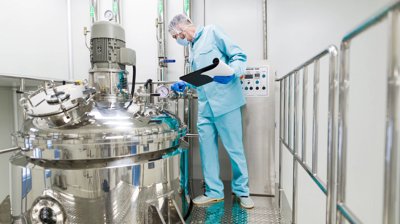
Carbon reductions in logistics
Refrigerated transport and cold-chain logistics are vital in the safe movement of many foods and pharmaceuticals, but it’s an energy-intensive operation.
ABbiotek Health has created inactivated yeast postbiotics, developed to withstand the stresses of the gastric environment better than bacterial probiotics. Another benefit of yeast probiotics is that they don’t need refrigerating, meaning less energy is required in their transportation and storage, so they have a lower carbon footprint.
